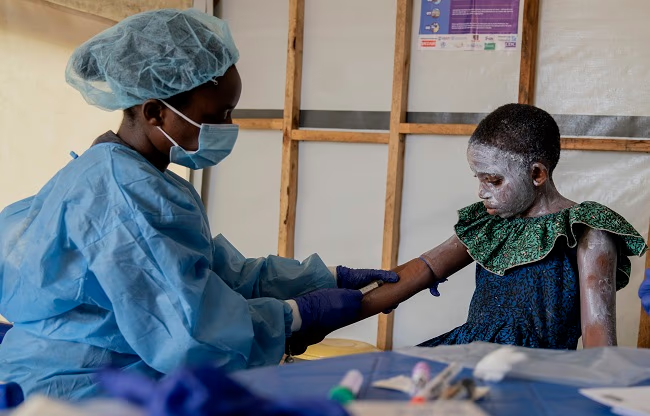In the last two years, Mpox, also known as Monkeypox, has been declared a Global Health Emergency for the second time. Cases have been reported in India’s neighboring country, Pakistan. This has raised the question of why infectious diseases often originate from African or Asian countries. Besides Monkeypox, diseases like the Coronavirus, Zika, and Ebola have also first emerged in Africa or Asia.
According to the World Health Organization's Disease Outbreak News, most alarming diseases on a global level originate from either Africa or Asia. Additionally, zoonotic diseases, which are transmitted from animals to humans, are prevalent in Africa. From 2012 to 2022, there was a 63% increase in such diseases. Within these ten years, over 1,800 new or infectious diseases emerged here.
Which Diseases Have Originated from Africa
Anthrax, Avian Influenza, Cholera, Crimean-Congo Hemorrhagic Fever, Dengue, Hepatitis B, C, and E, Monkeypox, Plague, Rift Valley Fever, Yellow Fever, and Zika Virus. Among these outbreaks, 70% were Ebola and other viral hemorrhagic fevers, while diseases like Dengue, Anthrax, Plague, and Monkeypox made up the remaining 30%.
Asia, especially China, has also seen numerous outbreaks. For instance, the Coronavirus originated from Wuhan. Before that, China was the source of several infectious diseases, such as the Black Death and Asian Flu. SARS (Severe Acute Respiratory Syndrome), which has a high mortality rate, was first identified in Southern China.

Source: aajtak
There are multiple reasons for the spread of diseases from African countries and China's Asia. Firstly, population density. According to the World Bank, Asia and the Pacific alone house 60% of the world's population. Additionally, there is significant migration now. Forests are being cleared to accommodate new arrivals, bringing people directly into contact with wild animals. These animals carry thousands of viruses capable of attacking humans.
Live animal markets are prevalent here, like the Wuhan Wet Market in China, which gained much attention. In these markets, exotic foods such as bats and snakes are available. Due to space constraints, different species are kept next to each other, facilitating the transmission of deadly viruses from one to another.

Source: aajtak
In many parts of Africa, hunting wild animals for food is common, especially in sub-Saharan Africa. People enter forests and come into direct contact with animals while preparing their catch. This is a significant cause of zoonotic diseases.
There are various other reasons as well. Global warming has contributed to the spread of many diseases, such as mosquito-borne infectious diseases. Moreover, since healthcare in Africa is not as developed, diseases are often not identified in time.
Regarding the Mpox virus, let’s get to know why it is causing concern. It is a viral disease caused by the Monkeypox virus. The Mpox virus was initially discovered in monkeys in 1958. It belongs to the orthopoxvirus family, which includes other pox viruses. The Mpox virus spreads from infected animals to humans, which is currently being observed.




